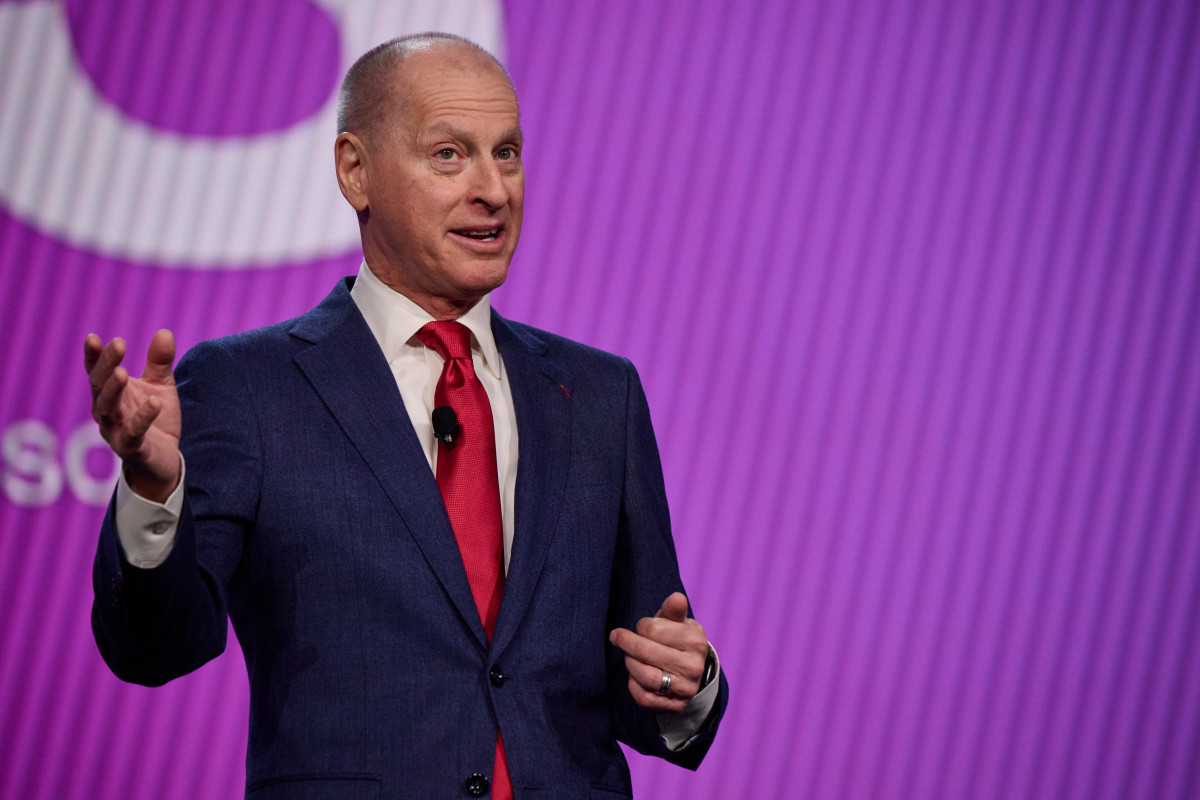For anyone wondering why most major tech stocks have been falling hard all week, the answer can be mostly summarized in one word: tariffs.
Ever since U.S. President Donald Trump announced sweeping new tariffs just a few weeks after the previous round, the U.S. economy has been in turmoil, as uncertainty has swept over it, pushing down entire financial markets.
💰💸 Don’t miss the move: SIGN UP for TheStreet’s FREE Daily newsletter 💰💸
Panic is already setting in as both investors and consumers consider the possibility not just of a bear market but of a full-on recession. For months, economic experts have been raising concerns about the impact of these trade policies but the administration has pushed forward.
Now, as fears set in of much darker days ahead for the U.S. economy, business leaders are laying out why they believe these tariffs are ill-advised and making clear who will be the most affected.
 Consumer Tech Association (CTA) CEO Gary Shapiro has made a grim prediction for the U.S. economy.
Consumer Tech Association (CTA) CEO Gary Shapiro has made a grim prediction for the U.S. economy.
One tech trade leader is sounding the alarm on Trump’s tariffs
While Trump and his administration have repeatedly claimed that tariffs will benefit the U.S. economy by creating jobs and reducing its dependence on trade partners, many experts have argued that the opposite is true. Michael Strain of the American Enterprise Institute has argued that they will not revive U.S. manufacturing.
He is far from the only one who believes the broad impact of tariffs will be negative. Other experts have argued that tariffs will lead to much higher prices for most goods, as companies will shift the burden of higher costs onto consumers.
Related: Trump tariff moves carry big risks for everyone
This includes many firms in the consumer tech space that will face higher import and manufacturing costs. The head of a group that represents them recently discussed where he stands on these tariffs, highlighting some significant concerns he has.
Gary Shapiro is CEO and Vice Chair of the Consumer Technology Association (CTA), a trade group representing the interests of over 1200 companies in the space. In a statement released on April 2, he issued some grim economic predictions for the near future.
“Americans will become poorer because of these tariffs,” he states. Shapiro describes them as “massive tax hikes” that will eliminate jobs for hard-working Americans and could ultimately spark a recession.
“This will not be a golden age – but a return to the global economic catastrophe of the Smoot-Hawley tariffs of the 1930s that will disproportionately hurt low-income and hardworking Americans,” he adds, highlighting the tariff act of 1930 that is widely credited with plunging the U.S. into the Great Depression.
More technology:
- Foxconn sounds the alarm on on critical issue for tech companies
- Former big tech CEO issues grave warning on the impact of tariffs
- Hedge fund short positions point to the end of Magnificent 7 era
Jay Timmons, the president of the National Association of Manufacturers, recently issued a similar statement on the impact of tariffs, arguing that they will compromise America’s global manufacturing while threatening supply chain, jobs, and investment.
America’s tech sector faces a highly uncertain future
If Timmons’ predictions are correct, most tech companies will likely be severely compromised as the ongoing tariffs continue to complicate the global economy and prompt investors to be cautious.
Many tech companies have plunged over the past two days in response to the sweeping tariff news, including Nvidia (NVDA) , Microsoft, (MSFT) and Amazon (AMZN) , none of whom show signs of a rebound.
Related: Mark Cuban has some blunt words on the real impact of tariffs
Tesla (TSLA) is trending downward as well but that may be partially due to its recent deliveries, which fell short of Wall Street’s scaled-back estimates.
“Some companies have agreed to play ball with Trump’s tariff strategy,” Fortune reports. Apple (AAPL) , for instance, has promised to build AI servers in the U.S.; Honda says it will build a factory in Indiana; and Hyundai says it will build a steel plant in Louisiana. But even if those companies do follow through, it would take a long time, and be just a drop in the bucket for the labor market.”
This highlights an important aspect of the anti-tariff argument. Increasing manufacturing operations in the U.S. will likely take years. In the near future, many Americans will have to deal with higher prices and volatile economic conditions.
“Make no mistake: American consumers, families, and workers will feel real pain,” Shapiro warns.
Related: Veteran fund manager unveils eye-popping S&P 500 forecast
